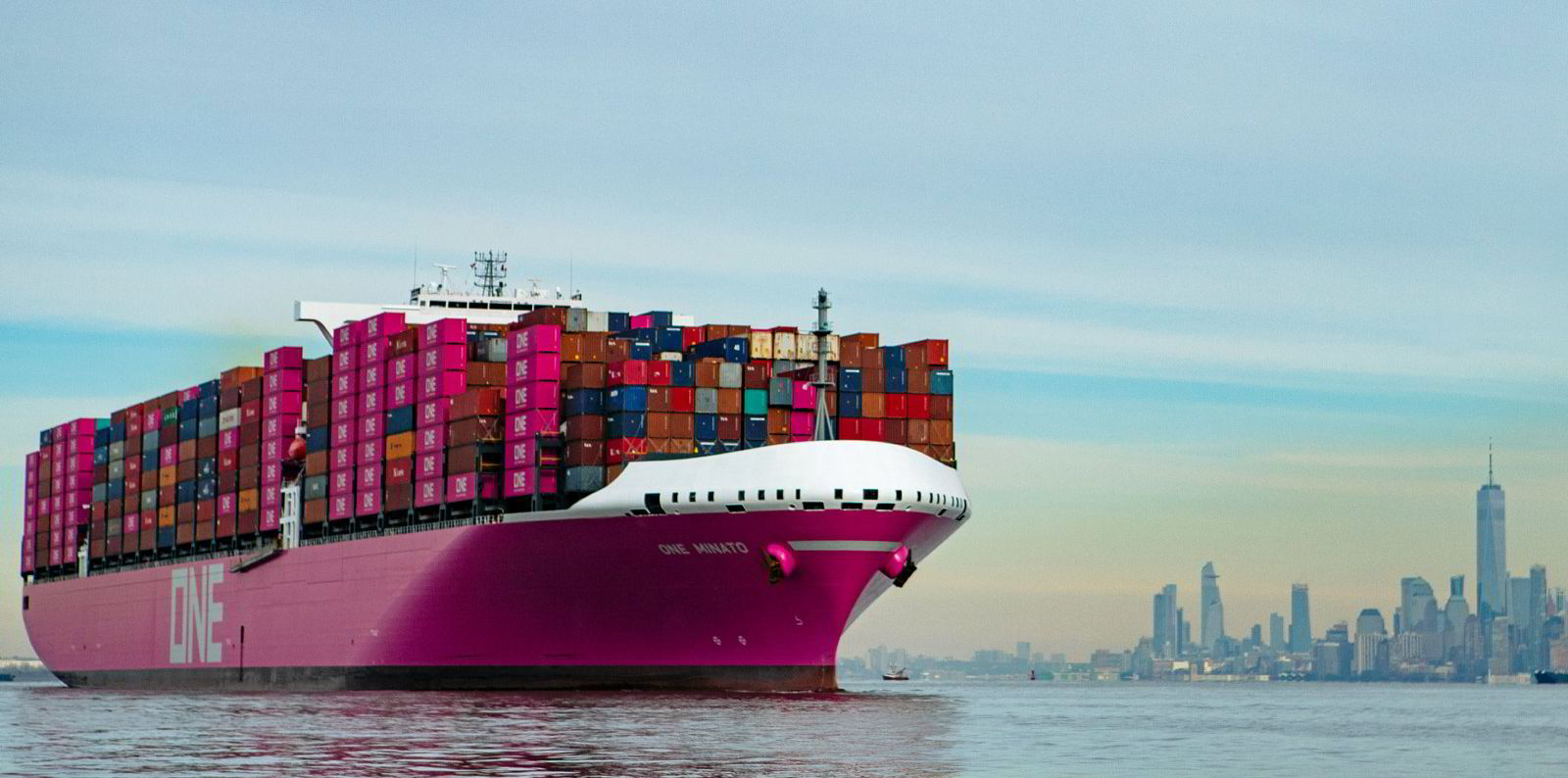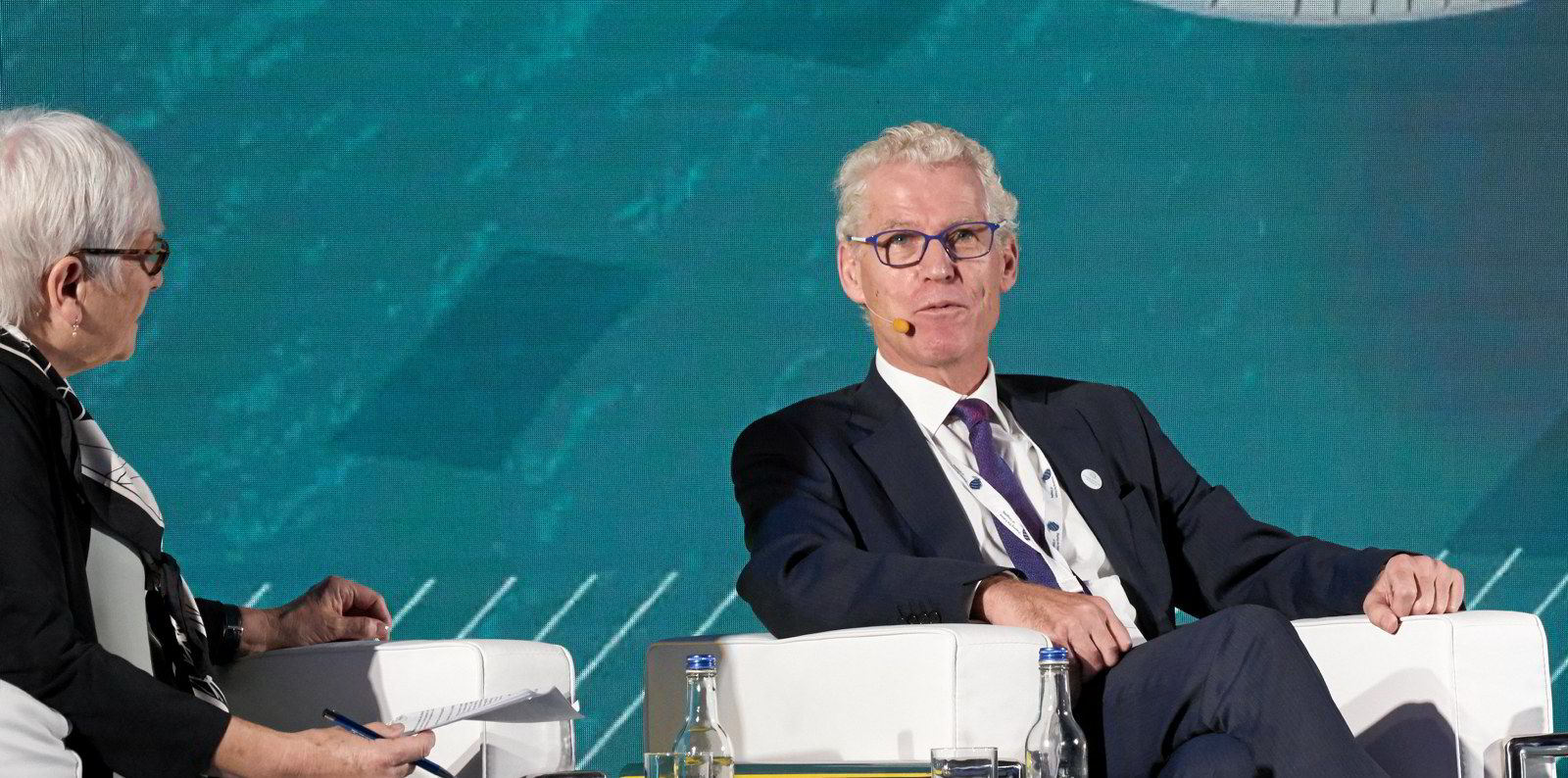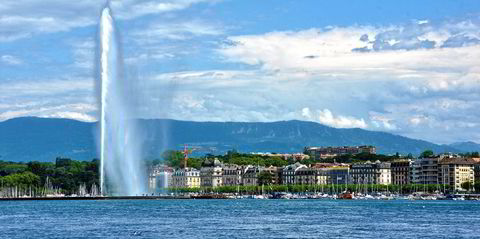Ocean Network Express (ONE) is pressing ahead in building up its owned fleet despite falling freight rates.
The Singapore-based company disclosed on Wednesday that it has ordered 10 neo-panamax container ships, with a carrying capacity of over 13,700 teu and delivery in 2025 and 2026.
The latest newbuilding deal lifts the total number of large container ships ONE has ordered to 20.
“This new order is in line with the company’s medium-term strategy announced in March 2022 and follows the 10 vessels ordered in May,” said ONE.
“By ensuring a stable deployment of new, state-of-the-art container vessels without being constrained by short-term fluctuations in the container market, the company aims to strengthen its fleet competitiveness and meet customer demand for building and maintaining an efficient and reliable supply chain.”
ONE said the newbuildings it has just ordered will be methanol and ammonia-ready. The ships will also be equipped with a bow cover and other energy-saving technologies.
“For ONE, green strategy is a top management priority, and it aims to achieve carbon neutrality by 2050. The company is committed to achieving sustainable maritime transportation by continuing to invest in greener assets and technologies and, as a leader in decarbonisation in shipping, to decarbonise maritime transport through extensive collaboration with industry stakeholders,” the company said.
It added that it has started discussions with the shipyard and equipment manufacturers to implement on-board carbon capture and storage on delivery.
The liner company did not disclose the cost of the newbuildings nor which shipyard has been commissioned for the construction. However, shipbuilding sources pointed their fingers firmly at Japan’s Nihon Shipyard, a joint venture between Imabari Shipbuilding and Japan Marine United.
In May 2022, ONE debuted into the shipowning league by splashing out more than $1.6bn on 10 neo-panamax container ship newbuildings.
These conventional-fuelled but methanol and ammonia-ready 13,700-teu container ships were ordered at Nihon Shipyard and South Korea’s Hyundai Heavy Industries, with each yard tasked with building five ships.
They reportedly cost around $160m each and are slated for delivery in 2025.






